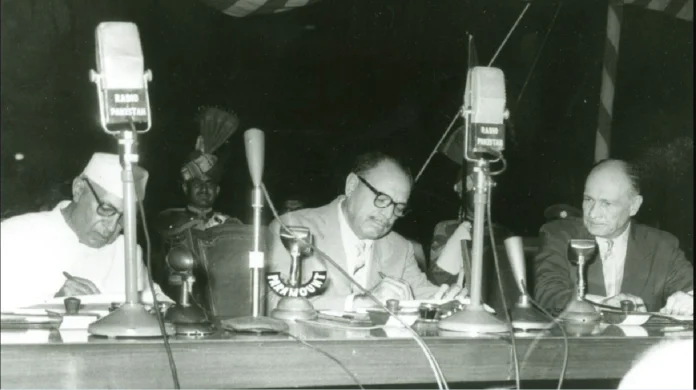By Prof (Dr) S. Surya Prakash
On September 19, 1960, India and Pakistan signed the Indus Waters Treaty, brokered by the World Bank, to peacefully divide the waters of the six Indus Basin rivers. Jawaharlal Nehru and Pakistani President Mohammad Ayub Khan inked a deal built on “goodwill and friendship.” India agreed to let Pakistan use over 80 percent of the Indus basin’s waters—even funding Pakistan’s irrigation infrastructure.
India’s share was confined largely to the eastern rivers—Ravi, Beas, and Sutlej—while Pakistan got the lion’s share of the western rivers—Indus, Jhelum, and Chenab. Generosity or geopolitical miscalculation? That debate has raged ever since.
FOUR WARS, ONE TREATY—UNTIL NOW
Despite four wars and countless provocations, the Indus Waters Treaty remained untouched—until now. The Pahalgam terror attack on April 22, 2025, in which Islamic terrorists murdered 26 Indian tourists in cold blood, has proven the final straw.
India launched Operation Sindoor in response—crippling terrorist infrastructure across the border. And in a dramatic diplomatic strike, External Affairs Minister S Jaishankar announced the suspension of the Treaty until Pakistan irrevocably ends cross-border terrorism.
KASHMIR, WARS AND VIOLATIONS
Pakistan’s obsession with Kashmir has fuelled wars and proxy terrorism since 1948. Whether it was the tribal invasion in the name of “kabilas” in 1947 or the Kargil misadventure in 1999, Pakistan’s strategy has never changed. It continues to raise the Kashmir issue at international forums in blatant violation of the 1972 Simla Agreement.
Pakistan has also flouted the Treaty commitments. Its Left Bank Outfall Drain project, backed by the World Bank, diverted saline water via the Great Rann of Kutch—violating Article IV of the Treaty. And yet, India remained committed, even paying £62 million to build Pakistan’s irrigation canals.
INDIA’S RED LINE: BLOOD AND WATER CANNOT FLOW TOGETHER
The heinous Pahalgam attack triggered a seismic shift. “Blood and water cannot flow together,” Prime Minister Modi thundered from the Airbase at Nal, near Bikaner. India has not only suspended the Treaty, but withheld data on river flows—an essential component of treaty compliance.
The message is clear: any further provocation will invite consequences beyond surgical strikes. Water, once a symbol of compromise, is now a tool of deterrence.
—The writer is Vice-Chancellor, National Law Institute University, Bhopal


